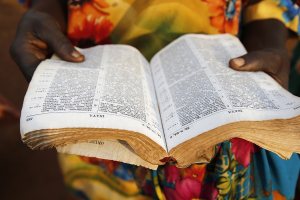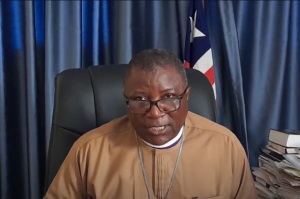Pope Decries 'Marginalization' of Religion
Religion has a "legitimate" role to play in the public square, Pope Benedict XVI stressed Friday in addressing members of Britain's houses of parliament.
And social consensus alone, he warned, cannot be allowed to determine the moral principles underpinning the democratic process.
"Religion is not a problem for legislators to solve, but a vital contributor to the national conversation," the pontiff said before calling out "those who would advocate that the voice of religion be silenced, or at least relegated to the purely private sphere."
"In this light, I cannot but voice my concern at the increasing marginalization of religion, particularly Christianity, that is taking place in some quarters, even in nations which place a great emphasis on tolerance," the pontiff added.
Benedict delivered his address in London's Westminster Hall Friday afternoon in the wake of what many Christians in the United Kingdom have come to describe as "a growing hostility from a small number of influential people promoting a secular agenda."
"There have been a number of high-profile cases involving gagging orders on Christians sharing their faith at work, praying for people and practicing their faith in obedience to biblical teachings in the work place," reported Steve Clifford, general director of the Evangelical Alliance, which represents around a million evangelicals in the United Kingdom.
It is "a time of almost unprecedented hostility to Christianity in this country," added the Anglican Bishop of Chicester, the Rt. Rev. John Hind, ahead of Benedict's visit to Britain – the first by a pope in 28 years.
Among the most contested developments in Britain has been the passing of Equality Act 2010, which requires equal treatment in access to employment as well as private and public services, regardless of gender, race, disability, sexual orientation, belief and age.
While the bill has an exemption that covers ministers of religion, critics say the legislation could lead to prosecution of faithful employers who decide not to against their beliefs by employing homosexuals. Companies and organizations could also feel forced to hinder Christian employees from reasonably following their beliefs as the bill enables staff to seek damages from employers who fail to take reasonable steps to protect them from any form of discrimination.
Since the legislation was passed, a number of Christians have reportedly lost their jobs or faced disciplinary action for practicing their faith at work by wearing a crucifix or sharing their views on biblical teaching.
"Religion is not something we do in church on Sunday," EA leader Clifford argued. "It's a living reality that affects every area of our lives."
While Benedict admitted in his address Friday that "distorted" manifestations of religion – such as sectarianism and fundamentalism – had made the "purifying" and "corrective" role of religion in political debate sometimes unwelcome, he warned that the total exclusion of religion from public debate could leave reason and ideology vulnerable to similar distortions that fail to take full account of the dignity of each individual.
"That is why I would suggest that the world of reason and the world of faith – the world of secular rationality and the world of religious belief – need one another and should not be afraid to enter into a profound and ongoing dialogue, for the good of our civilization," the pope said.
In his address, Benedict also dismissed the notion that Christian festivals should be celebrated without any reference to the Christian faith – as some councils in Britain have attempted to do in recent years – and called for dialogue at every level of national life.
"There are those who argue that the public celebration of festivals such as Christmas should be discouraged, in the questionable belief that it might somehow offend those of other religions or none," he said in the presence of former Prime Ministers Margaret Thatcher, John Major, Tony Blair, and Gordon Brown.
"And there are those who argue – paradoxically with the intention of eliminating discrimination – that Christians in public roles should be required at times to act against their conscience," Benedict added.
The pope said he considered as "worrying signs" the failure to appreciate not only the rights of believers to freedom of conscience and freedom of religion, but also the legitimate role of religion in the public square.
"I would invite all of you, therefore, within your respective spheres of influence, to seek ways of promoting and encouraging dialogue between faith and reason at every level of national life," the pope exhorted.
After his address, the pope left Westminster Hall to greet the thousands of pilgrims waiting outside to see him despite reports of a suspected plot to attack him. Six men have been arrested in connection with the plot.
Later that day, the pope held a joint service with the head of the Church of England and the worldwide Anglican Communion, Archbishop of Canterbury Dr. Rowan Williams, and other Christian leaders. The service at Westminster Abbey marked the first time a pope had ever worshiped there.
The pope is scheduled to conclude his visit to the United Kingdom on Sunday with a meeting with the bishops of Scotland, England and Wales. He is expected to return to Rome Sunday night.
Christian Today Reporter Maria Mackay in London contributed to this article.





























